Speakers
Speakers
Scientific Supervisory Board
John Walker
Professor Sir John Walker FRS studied chemistry at St Catherine’s College, Oxford. After periods of study and research at the University of Wisconsin, USA, and The Pasteur Institute in Paris, in 1974 he joined the Laboratory of Molecular Biology of The Medical Research Council (MRC) in Cambridge, where he helped to discover overlapping genes in bacteriophages, and established their presence in human mitochondrial DNA. He identified three of the thirteen proteins encoded in human mitochondrial DNA and established details of the modified genetic code in human mitochondria. He also discovered the two eponymous protein sequence motifs involved in binding nucleotides in a wide range of proteins. They are the most widely dispersed sequence motifs in the entire biological kingdom.
In Cambridge, he developed his interest in how energy in food is transferred, in the mitochondria inside the cells that constitute our bodies, into the molecule ATP (or adenosine triphosphate), the energy currency of life. In 1982, he defined the basic threefold repeated structural fold that defines the 53 members of the family of mitochondrial transport proteins in humans, amongst them the protein that transports ATP, made in the mitochondrion, into the cellular cytoplasm thereby making it available as a source of energy for biological functions such as replication of DNA, RNA and proteins, and the functioning of muscles and the brain. In collaboration with F. Palmieri, he went on to contribute to the identification of the biochemical functions of fifteen members of this family, including the aspartate-glutamate exchanger where human mutations are associated with type II citrullinemia.
In 1994, his work on the complex molecular machine in the mitochondria, known as the ATP synthase, led to the realisation that the energy released by the oxidation (controlled burning) of dietary sugars and fats is coupled by a mechanical rotary mechanism to generate the 60 kg of ATP that each of us makes daily to sustain our lives. This work led to the award of the Nobel Prize in Chemistry in 1997. In the 1990s, he also defined the protein composition and the localisation of the proteins in another huge molecular assembly in mitochondria, known as complex I, which is also involved in biological energy conversion, thereby providing essential foundations for more recent investigations by colleagues on its structure and function.
In 1998, he was appointed Director of the MRC Dunn Human Nutrition Unit in Cambridge, which became the MRC Mitochondrial Biology Unit in 2008. Since 2013 he has been Director Emeritus. Here he continues to delve deeper into the fundamental basis of energy conversion in biology, and works to use that knowledge for medical benefit. He is a Fellow of the Royal Society, and in 2012, he received its Copley Medal, the UK’s highest scientific accolade. He is also a Fellow of the Academy of Medical Sciences, a Fellow of Sidney Sussex College, Cambridge, an Honorary Fellow of St Catherine’s College, Oxford, a Foreign Member of L’Accademia Nazionale dei Lincei, of the Royal Netherlands Academy of Arts and Sciences, and of The Royal Society of New Zealand, and a Foreign Associate of the US National Academy of Sciences.
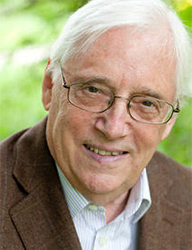
John Walker
University of Cambridge, UK
Johannes Häberle
Professor Johannes Häberle is a pediatrician, neonatologist and intensive care specialist, and a senior metabolic consultant at the University Children’s Hospital in Zürich. He is an Assistant Professor for Pediatrics at the University of Zürich, and Head of the Metabolic Laboratory at the University Children’s Hospital. Professor Häberle is chairperson of the European working group for Guidelines for the Diagnosis and Treatment of Urea Cycle Disorders, and the Co-Chair of the German Metabolic Society. He is also a member of the Executive and Scientific Boards of the European Registry and Network for Intoxication Type Metabolic Diseases (EIMD). He is Chair of the Society for the Study of Inborn Errors of Metabolism (SSIEM) Education And Training Advisory Committee (ETAC) and Council member of the SSIEM. His research focusses on inherited defects of ureagenesis and on the development of novel treatment options for urea cycle disorders. Current projects are supported by the Swiss National Science Foundation, the University Research Priority Program (URPP) ITINERARE of the University Zürich, and other private foundations.
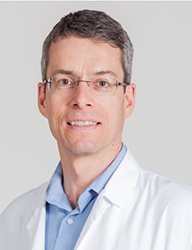
Johannes Häberle
University Children Hospital Zürich, University of Zürich, Switzerland
Barbara Yu
Barbara believes strongly in the long-term vision of finding a cure for citrin deficiency by bringing together world leading experts to work collaboratively on it, and to provide support for patients globally with this rare condition. It is with such belief that she co-founded Citrin Foundation with her husband Yen How Tai. Together, they have provided all the funding for the Foundation.
Barbara Yu is also the co-founder and co-CEO of YH2 Capital, an investment firm that adopts a long-term investment approach. The firm’s investment return has constantly outperformed the market since its inception.
Prior to founding YH2 Capital, Barbara was the Head of Asia and Partner of Eton Park Capital Management from 2006 to 2010 and was responsible for Eton Park’s public and private investments in Asia. In her role, Barbara founded, built and managed the Asia investment business of Eton Park since its inception in 2006.
Prior to joining Eton Park in 2006, Barbara spent five years at Goldman Sachs in Hong Kong where she rose to the position of the Head of the firm’s Principal Strategies Group in the Asia Pacific region. The Group encompassed the proprietary investing business of the equities division at Goldman. Prior to joining Goldman Sachs, Barbara worked at Morgan Stanley in New York and Hong Kong, where she focused on mergers, acquisitions and restructuring.
Barbara graduated from Magdalene College, Cambridge University, with a BA in Law, double first-class honors. Barbara was awarded the N. Diaz Scholarship for Law and Norton Rose Prize for Commercial Law. She was also a Jardine Scholar which provided a full scholarship for her undergraduate study.
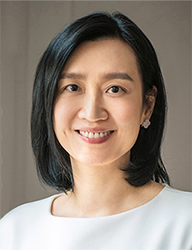
Barbara Yu
Citrin Foundation, UK
Yen How Tai
Yen How Tai is the co-founder, co-CEO, and CIO of YH2 Capital, an investment firm that adopts a long-term investment approach. Prior to founding YH2 Capital, Yen was an entrepreneur and investor. In 1999, he founded an online real estate company and grew it to be the biggest online property business in Hong Kong. After selling the business, Yen branched out into real estate investment and development in Shanghai, Beijing, Hong Kong and Singapore.
Before becoming an entrepreneur, Yen worked at Investor AB’s private equity arm in Asia. Yen started his career as a management consultant at McKinsey & Company’s in Greater China office, where he advised governments and leading multinational corporations in China, Japan and Southeast Asia, in the telecommunications, consumer products, information technology, government policies and retail sectors.
Yen graduated from Harvard University with a BA in Economics. Yen was an ASEAN Scholar.
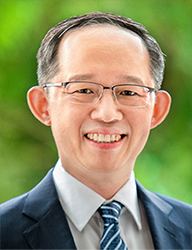
Yen How Tai
Citrin Foundation, UK
Day 1 Speakers
(Speakers are listed in the order of their scheduled presentations in the program)
Edmund Kunji


Edmund Kunji
University of Cambridge, UK
Sotiria Tavoulari

Sotiria Tavoulari
University of Cambridge, UK
Marc Hellerstein
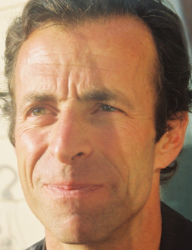
Dr. Hellerstein’s major research interest has been the measurement in vivo of metabolic fluxes through pathways critical to health and disease, as biomarkers for understanding metabolic control and its disorders, including applications in drug development and clinical diagnostics. This research has resulted in over 330 publications, 80 issued patents and participation on many editorial boards and as an advisor to NASA. Dr. Hellerstein co-founded a medical diagnostics and drug development biotech company, KineMed, Inc., in 2001 and a muscle diagnostic company, Myo Corps, Inc. in 2023.
By combining powerful mass spectrometric technology with insights into the mathematical footprint of metabolic flux in complex networks, his group has quantified in humans many metabolic processes that could not previously be studied. Methodologic advances from the Hellerstein lab include Mass Isotopomer Distribution Analysis (MIDA), the “equation for polymerization biosynthesis”; heavy water labeling for protein synthesis, including Dynamic Proteomics for measuring flux rates of proteins across the proteome; cell proliferation and turnover rates by metabolic labeling of newly replicated DNA with heavy water or glucose; non-invasive probes of intracellular intermediary metabolic fluxes, or “virtual biopsies”, including hepatic fibrogenesis, muscle protein synthesis and brain myelination rates; muscle mass from a spot urine sample; and flux metabolomics using combinatorial measurements to infer global fluxes from heavy water labeling.
This work directly addresses the major challenge of the next generation of biomedical research: translating our advanced understanding of molecular components (reductionist knowledge) into the ability to control and predict functional outcomes in vivo (integrated understanding) in humans. His work continues to look for ways that dynamic systems measurements can have a fundamental impact on basic biology and human health. By measuring intracellular metabolic processes in vivo that potentially play a causal role in the pathogenesis or treatment of disease and that were not previously able to be studied, these techniques can answer questions where the hard clinical outcomes take years or decades to become apparent. This work at its core has always been centered on translational medicine by creating minimally invasive techniques for monitoring disease-causal pathways in humans.
Contributions to Science:
- > 335 publications
- 23 Issued U.S. Patents; 55 Issued International Patents
- H-index: 94; I10 index: 307 (56 since 2018); 36,893 citations (12,492 since 2018)

Marc Hellerstein
University of California Berkeley, USA
Diana Stojanovski
Associate Professor Diana Stojanovski is a mitochondrial biologist located in the Department of Biochemistry and Pharmacology at the University of Melbourne and the Bio21 Institute. Dr Stojanovski obtained her PhD from La Trobe University in 2006 where she worked with Prof. Mike Ryan on the emerging topic of mitochondrial dynamics. In 2006, she moved to the University of Freiburg as an Alexander von Humboldt research fellow working with Prof. Nikolaus Pfanner on protein translocation systems in yeast mitochondria. Diana returned to La Trobe University in 2009 as an Australian post-doctoral fellow and in 2013 she was recruited to the University of Melbourne to start her independent research group.
The Stojanovski lab researches the molecular mechanisms underscoring mitochondrial diseases linked to fundamental mitochondrial pathways particularly protein biogenesis. The lab has made key discoveries pertaining to the TIM22 complex and carrier protein biogenesis and connections of this machinery to disease.
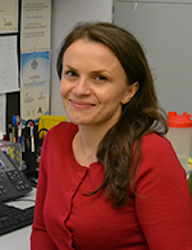
Diana Stojanovski
University of Melbourne, Australia
Charles Brenner
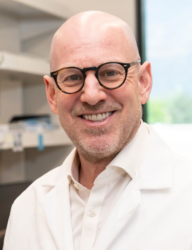
Dr. Charles Brenner is the Alfred E Mann Family Foundation Chair in Diabetes and Cancer Metabolism in the Department of Diabetes & Cancer Metabolism. His laboratory focuses on disturbances in nicotinamide adenine dinucleotide (NAD), the central catalyst of metabolism, in diseases and conditions of metabolic stress.
Among his most significant discoveries, he identified nicotinamide riboside as an unanticipated vitamin precursor of NAD. He also developed a quantitative metabolomic technology that allowed him to discover that the NAD system is disturbed by many diseases and conditions of metabolic stress including diabetes and cancer.
Specifically, Dr. Brenner and colleagues have found that in animal models of fatty liver, type 2 diabetes, diabetic and chemotherapeutic neuropathy, central brain injury, heart failure, postpartum and coronavirus infection, the NAD system is disturbed. In these models, provision of nicotinamide riboside is highly protective.
Dr. Brenner led the team that conducted the first clinical trial of nicotinamide riboside establishing safe oral availability and has participated in trials establishing safety and potential activities of nicotinamide riboside in clearance of liver fat and depression of common markers of inflammation. He continues to research how the NAD system is dysregulated as a function of postpartum, coronavirus infection, inflammatory conditions, diabesity and specific malignancies with the dual goals of defining mechanisms of biological regulation and developing safe preventative and therapeutic interventions for people.

Charles Brenner
City of Hope Hospital, USA
Nicola Brunetti-Pierri
Principal Investigator, Molecular Therapy Program Coordinator, Head of Translational Incubator at Telethon Institute of Genetics and Medicine
Professor, Department of Translational Medicine, University of Naples “Federico II’, Italy
Dr Nicola Brunetti-Pierri graduated in Medicine and trained in Paediatrics at University of Naples “Federico II”. He then moved to Baylor College of Medicine, Houston, TX, USA for a post-doctoral fellowship and for clinical training in Medical Genetic and Biochemical Genetics. He became assistant professor in the Department of Molecular and Human Genetics of Baylor College of Medicine and held this role until 2010 when he returned to Italy. As a physician-scientist his research goals are to elucidate the pathogenetic mechanisms and to develop new and more effective therapies for genetic diseases. He has defined the clinical phenotypes and identified the molecular bases of several genetic diseases (lathosterolosis, 1q21.1 deletion and duplication syndromes, FOXG1 duplication syndrome, blepharophimosis intellectual disability syndrome [BIS]). He developed proof-of-concept data supporting the efficacy of small molecule drugs for maple syrup urine disease, pyruvate dehydrogenase deficiency, urea cycle disorders, and Myhre syndrome. He has a long-standing interest in liver-directed gene therapy for inborn errors of metabolism, and has received awards from the American and the European society of gene and cell therapy (ASGCT and ESGCT). His research has been funded by the National Institute of Health and the European Research Council.
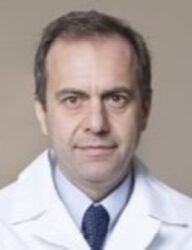
Nicola Brunetti-Pierri
Telethon Institute of Genetics and Medicine, Italy
Laura Contreras
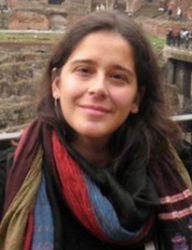

Laura Contreras
Universidad Autónoma de Madrid, Spain
Toni Vuković
PhD Student, University Children Hospital Zürich, University of Zürich
I obtained my bachelor’s degree in Molecular Biology from the University of Zagreb in 2020, after which I moved to Zurich to pursue a master’s degree at ETH. I completed the program in 2022, conducting my thesis in the laboratory of Prof. Dr. Sc. Helmuth Gehart. My research focused on developing a novel drug screening system for colorectal, prostate, and lung tumor organoids. I remained in the same laboratory for a post-master research position, where I worked on the development of a fluorescence reporter activated by cell-cycle regulated proteins. In November 2022, I commenced my doctoral studies at the Children’s Hospital Zürich under the supervision of Johannes Häberle. My current research aims to establish and characterize robust in vitro models of citrin deficiency to investigate the interplay between metabolic pathways implicated in the disease. These disease-representative models will be used for therapeutic compound screening, with the goal of identifying candidates that may enhance metabolic function in individuals with citrin deficiency.
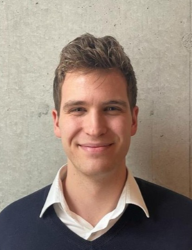
Toni Vuković
University Children Hospital Zürich, University of Zürich, Switzerland
Joe Carroll
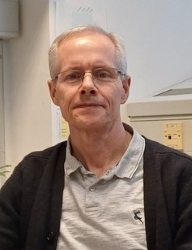

Joe Carroll
University of Cambridge, UK
Giuseppe Fiermonte
Full Professor of Biochemistry, Department of Biosciences, Biotechnologies, and Biopharmaceutics, University of Bari, Italy
Prof. Giuseppe Fiermonte is an internationally recognized expert in mitochondrial bioenergetics, metabolism, and mitochondrial transporter deficiencies. His research has significantly advanced the understanding of mitochondrial carrier proteins, their physiological roles, and their involvement in human diseases.
Prof. Fiermonte has played a pivotal role in elucidating the molecular mechanisms underlying mitochondrial carrier deficiencies, including AGC1/2, glutamate, ornithine/citrulline, thiamine pyrophosphate, and UCP2 transporter defects. His work, published in leading journals such as Nature Genetics, Nature Metabolism, PNAS, and The New England Journal of Medicine, has provided critical insights into the metabolic consequences of these mutations.
More recently, he has been developing iPSC-derived 3D organoid models to investigate the pathophysiological roles of mitochondrial transporters in human genetic diseases and cancer, further bridging fundamental research with translational medicine.

Giuseppe Fiermonte
University of Bari, Italy
Alice Sowton
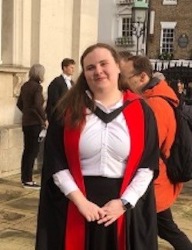

Alice Sowton
University of Cambridge, UK
Day 2 Speakers
Gerald Schwank
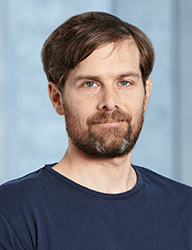

Gerald Schwank
University of Zürich, Switzerland
Julien Baruteau
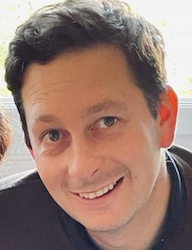 Dr Julien Baruteau is an MRC Clinician Scientist Fellow at University College London Great Ormond Street Institute of Child Health, and Consultant in Metabolic Medicine at Great Ormond Street Hospital for Children (GOSH) in London.
Dr Julien Baruteau is an MRC Clinician Scientist Fellow at University College London Great Ormond Street Institute of Child Health, and Consultant in Metabolic Medicine at Great Ormond Street Hospital for Children (GOSH) in London.
He graduated in Pediatrics from Toulouse University, France in 2008. He then specialised in Pediatric Inherited Metabolic Medicine in Paris and Toulouse. He joined the Metabolic Medicine Department at GOSH in 2012. He has been granted various fellowships from Action Medical Research (2013-2016), GOSH Charity (2017), National Institute for Health Research GOSH Biomedical Research Centre (2018-2019) and the Medical Research Council to conduct his research (2020-present). He received his PhD in Gene Therapy at UCL in 2017 under the supervision of Prof Simon Waddington.
His research focuses on studying the pathophysiology and developing novel therapies for inherited metabolic diseases. His group works on the pathophysiology of hepatic and cerebral arginine deficiency. He has developed gene therapy using both viral and non-viral vectors and is the UK chief investigator in first-in-human gene therapy clinical trials. He has expertise in translating academic and industry-led programmes of gene therapies. He is the member of experts’ committees from the European Society of Gene and Cell Therapy (2023-present) and the European Society of Human Genetics (2023-present).

Julien Baruteau
Great Ormond Street Hospital, University College London, UK
Jeremy Duffield
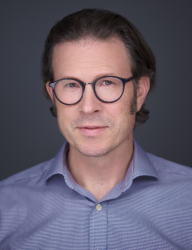
Jeremy Duffield, MD, PhD, FRCP, is the Chief Scientific Officer of Prime Medicine.
Prime Medicine is a clinical stage gene editing company, developing Prime Editors to treat patients with Chronic Granulomatous Disease. Prime Medicine is also developing Prime Editors to treat Wilson’s Disease, alpha-1 anti-trypsin deficiency, cystic fibrosis, and using Prime Editors to generate CAR-T cell therapies for cancer and autoimmunity
Prior to joining Prime Medicine, Dr. Duffield held several leadership roles, with focus in the fields of human genetics, innate immunity and regenerative medicine. He served as Global Head of Human Biology at Vertex Pharmaceuticals and as Vice President of Business Development where he and his team played important roles in discovering and advancing candidates to clinical studies in rare diseases including cystic fibrosis, alpha 1-antitrypsin deficiency, sickle cell disease, type I diabetes mellitus, APOL1-mediated kidney disease and muscular dystrophies. Several candidates are now approved therapies. He was instrumental in building Vertex Cell and Genetic Therapies.
At Biogen, Dr. Duffield served as Senior Research Fellow and Vice President with responsibilities in early research programs, as joint Head of Innate Immunity and Regenerative Medicine therapeutic area, and as Head of the Biogen Post-Doctoral program. There he contributed to advancing integrin inhibitors, TNF superfamily inhibitors and IRAK inhibitors to clinical evaluation for pulmonary fibrosis and autoimmune diseases.
Prior to joining the leadership at Biogen, Dr. Duffield had a distinguished academic career on the faculty at University of Washington and Harvard Medical School as Head of the National Institutes of Health/National Center for Advancing Translational Sciences/American Heart Association-funded Laboratory for Innate Immunity and Regeneration. His laboratory used contemporary genetic methods to study cell and molecular function in innate immune and vascular cells in disease. Inventions from the laboratory contributed to the creation of several biotech companies, two of which advanced candidates in late clinical trials. Additionally, Dr. Duffield practiced Internal Medicine and Nephrology at Massachusetts General Hospital until 2019.
Dr. Duffield served on NIH study sections, several company scientific advisory boards, is a member of the American Society of Clinical Investigation and received many scientific awards including the ASN-AHA Young Investigator Award and the NIH Early Career Investigator/Scholar Award.
Dr. Duffield received his B.A. and M.D. (B.M., B.Ch.) from Oxford University and a Ph.D. in Immunology from the University of Edinburgh in the laboratory of Sir John Savill.

Jeremy Duffield
Prime Medicine, USA
Benjamin Greener
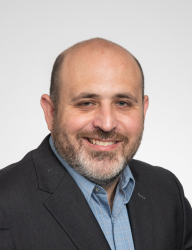

Benjamin Greener
Arcturus Therapeutics, USA
Joseph A. Baur
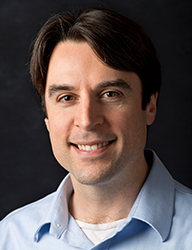

Joseph A. Baur
University of Pennsylvania, USA
Marc Prentki
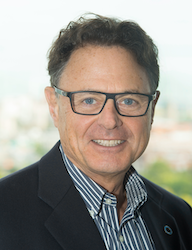

Marc Prentki
Montreal Diabetes Research Center, CRCHUM, Canada
Yukio Nagasaki


Yukio Nagasaki
University of Tsukuba, Japan
Kimihiko Oishi
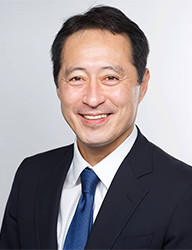
Dr. Kimihiko Oishi is a Professor and the Chair of the Department of Pediatrics at Jikei University School of Medicine.
He received his medical degree from Jikei University School of Medicine in Tokyo, Japan, followed by a Pediatrics residency at Jikei University Hospital. After his research fellowship in a molecular cardiology laboratory at Icahn School of Medicine at Mount Sinai in New York, USA, he completed his Pediatrics Residency and Medical Genetics Fellowship at Mount Sinai Hospital.
After completing his fellowship, he joined the faculty at Icahn School of Medicine at Mount Sinai as an attending physician for the Program for Inherited Metabolic Diseases Clinic with a special interest in the mechanism of disease and development of new therapies for inborn errors of metabolism (IEM). He was also appointed as an Assistant Professor for the Department of Genetics and Genomic Sciences and Department of Pediatrics.
Dr. Oishi is a recipient of the Urea Cycle Disorder Consortium Fellowship with a project of clinical and molecular characterization of citrin deficiency in the US. With his leadership, his team in Mount Sinai made the English version of Prof. Saheki’s citrin deficiency book available for the Citrin Foundation. With his clinical and basic science training background in Japan and the United States and Dr. Oishi has medical license and board certifications in pediatrics and clinical genetics in these two countries.

Kimihiko Oishi
Jikei University School of Medicine, Japan
Anu Suomalainen
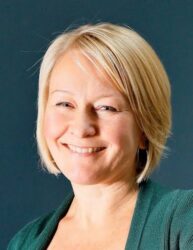
Dr. Suomalainen, MD PhD, is professor of clinical molecular medicine and director of stem cells and metabolism research program at Faculty of Medicine, University of Helsinki. She is also a chief physician in the Helsinki University Hospital Finland. She is a member of Finnish Academy of Science and Letters, European Molecular Biology Organization EMBO and Academia Europaea. She has worked as a visiting scientist/postdoctoral researcher and visiting professor in Columbia University, NYC; McGill University QC Canada; and UC Berkeley, respectively. Her group focuses in metabolic signaling and mechanisms and therapy development for degenerative and mitochondrial diseases.

Anu Suomalainen
University of Helsinki, Finland
Kevin Mills
Professor Kevin Mills is an Honorary Clinical Scientist at Great Ormond Street Hospital (GOSH) and Head of the Translational Mass Spectrometry Research Group at the UCL Institute of Child Health. He obtained his degree in Biochemistry from Cardiff University in 1991, briefly working in industry before undertaking a PhD in rare diseases and in 2001 made a lecturer at the UCL Institute of Child Health at Great Ormond Street Hospital. His research group uses mainly the techniques of proteomic, metabolomic and lipidomic mass spectrometry. Our main research interest involves using these techniques to understand the disease mechanisms underlying childhood neurological and lysosomal storage diseases. However, he works closely with our sister hospital at the National Hospital of Neurology and Neuroscience, using our rare disease experience and systems, as models of more common diseases and vice versa for e.g. Alzheimer’s disease and Niemann Pick Type C. To date Kevin has over 200 publications and brought in excess of £15 million in grants since 2012.
Using a mixture of basic and translational science, we aim to understand the mechanisms of disease so we can attempt to design treatments and we do this using plasma, urine, CSF, tissue as well as cell models and iPSc derived cell derived from our patients. Our group is composed of a mixture of 15 clinical and non-clinical research fellows working side by side on basic as well as patient-driven, translational research which aims to establish rapid, sensitive methods to study, diagnose and monitor the treatment of patients from Great Ormond Street Hospital and National Hospital of Neurology and Neuroscience. Recently, our laboratory was involved in the government’s ‘Operation Moonshot’ and the development of a test for Covid 19 that is currently being trialled in the NHS.
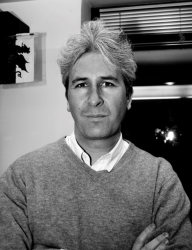
Kevin Mills
University College London, UK
Yoichi Wada
<Education and Professional Experience>
-
March 2010: Graduated from Tohoku University School of Medicine (M.D.)
-
April 2010 – March 2012: Clinical Resident, Kurashiki Central Hospital
-
April 2012 – March 2015: Pediatric Resident, Kurashiki Central Hospital
-
April 2015 – March 2019: Ph.D. Program, Graduate School of Medicine, Tohoku University (Department of Pediatric Disease Biology)
-
April 2019 – September 2023: Assistant Professor, Department of Pediatrics, Tohoku University Hospital
-
September 2023 – December 2024: Visiting Fellow, Metabolic Medicine Branch, National Human Genome Research Institute, NIH (in the laboratory of Dr. Charles Venditti)
-
October 2024 – March 2025: Assistant Professor, Department of Pediatrics, Tohoku University Hospital
-
April 2025 – Present: Lecturer, Department of Medical Creation, SiRIUS (Institute for Research of Innovative Medical Science), Tohoku University; Concurrent Position: Department of Pediatrics, Tohoku University Hospital
<Qualifications>
-
Doctor of Philosophy (Ph.D. in Medicine)
-
Board-Certified Pediatrician / Pediatric Instructor
-
Board-Certified Clinical Geneticist
<Awards>
-
2012: Ivy Orator, Kurashiki Central Hospital
-
2019: Encouragement Award, Japanese Society for Inherited Metabolic Diseases (JSIMD)
-
2019: Travel Award, JSIMD
-
2019: Arakawa Memorial Award, Department of Pediatrics, Tohoku University
-
2023: Tohoku University Prominent Research Fellow
-
2023: Best Young Investigator Award, JSIMD
-
2023: Travel Award, Society for the Study of Inborn Errors of Metabolism (SSIEM)
-
2023: The JSPS Japanese Research Fellowship at NIH (KAITOKU-NIH)
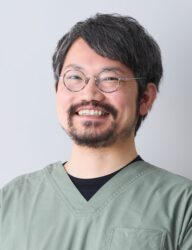
Yoichi Wada
Tohoku University, Japan
Day 3 Speakers
Marshall L. Summar
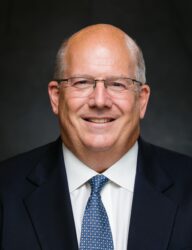
Dr. Marshall L. Summar, MD, is a recognized leader in the field of rare diseases, with over 40 years of experience in clinical care, research, and innovation. He is the Chief Executive Officer of Uncommon Cures, LLC, a company specializing in rare disease clinical trials. The company focuses on consolidating trials and utilizing technology to reduce time and cost. He co-founded Uncommon Cures in 2022 after a long career in academic medicine and research.
Dr. Summar began his career at Vanderbilt University, where he advanced from assistant professor to a tenured professor in Pediatrics and Molecular Physiology & Biophysics. His work at Vanderbilt focused on inborn errors of metabolism, particularly urea cycle disorders. In 2010, he joined Children’s National Hospital in Washington, D.C., as Chief of the Division of Genetics and Metabolism. He later established and led the Rare Disease Institute, the first clinical home dedicated to patients with genetic rare diseases, and secured its designation as the first Rare Disease Clinical Center of Excellence by the National Organization for Rare Disorders (NORD).
Dr. Summar’s research has produced over 180 peer-reviewed publications and resulted in more than 120 international patents, covering therapies, software, and devices. His work has contributed to new treatments for conditions such as sickle cell anemia, organic acidemias, congenital heart disease, and complications of premature birth. Several of these treatments are currently in FDA trials. His expertise extends to translating biochemical research into clinical practice, particularly in the areas of ammonia and nitrogen metabolism.
He is board-certified in Pediatrics, Clinical Genetics, and Biochemical Genetics. Dr. Summar has served as President of the Board of Directors for NORD and as President of the Society for Inherited Metabolic Disorders. At NORD, he was involved in developing the IAMRARE digital registries for patients and the Clinical Centers of Excellence program. His advisory roles include serving on committees and boards for organizations such as the Black Women’s Health Imperative Rare Disease Diversity Coalition, PHLOW Pharmaceuticals, NIH’s National Center for Advancing Translational Sciences, and the American College of Medical Genetics’ Public Policy Committee.
Dr. Summar has received numerous recognitions for his work, including NORD’s Lifetime Achievement Award in 2022. His career demonstrates a consistent focus on improving the diagnosis and management of rare genetic disorders, advancing research, and fostering collaboration among clinicians, researchers, and families. His work at Uncommon Cures continues this trajectory, emphasizing efficient and effective clinical trials for rare diseases.

Marshall Summar
Uncommon Cures, USA
Julian W März
Dr. Julian W. März, M.D., Ph.D., LL.M., J.S.D. has studied medicine, law, and bioethics at the Universities of Zurich, Oxford, Munich, Regensburg, and Passau, and the Institut d’Études Politiques (IEP) de Paris. He holds a master’s degree in economic law from the IEP de Paris (2016), a Ph.D. in Law from the University of Passau (2020), a Ph.D. in Bioethics from the University of Zurich (2023), and a Doctorate in Medicine from the University of Regensburg (2023). In addition, he holds the German State Diploma in Medicine (2023) and is licensed as a physician in Switzerland. His university studies have been funded by full scholarships from the German National Academic Foundation (Studienstiftung des deutschen Volkes).
Before joining the University of Zurich as a research fellow in October 2022, he has worked for the Division of Health Economics at the German Cancer Research Center (DKFZ) in Heidelberg, where he also wrote his doctoral thesis in medicine. In parallel, he has worked as research affiliate in pharmaceutical law for the Centre for Law, Medicine and Life Sciences of the University of Cambridge, and as lecturer in public health law at the IEP de Paris. Furthermore, he has worked as a trainee lawyer for the international law firms Cleary Gottlieb Steen & Hamilton LLP and Hogan Lovells LLP and as a trainee physician at the General Hospital of Luxembourg.
Julian is currently a research fellow of the University Research Priority Program (URPP) Innovative Therapies in Rare Diseases (ITINERARE) and the Institute of Biomedical Ethics and History of Medicine (IBME) at the Medical Faculty of the University of Zurich. In addition, he is lecturing in the fields of pharmaceutical law and medical ethics at the University of Zurich, the Zurich University of Applied Sciences (ZHAW), and the University of Geneva (UniGE). In October 2024, Julian was appointed as a member of the World Health Organization (WHO) Research Ethics Review Committee (ERC) for the 2024 – 2027 term. In parallel, he is acting as lead scientific advisor for the review and reform process of the Federal Law on the Genetic Testing of Humans (GUMG) by the Swiss federal government.
Julian’s main research interests lie in the areas of pharmaceutical law and research ethics, with a particular focus on cell and gene therapies, RNA-based therapeutics, and AI-enabled innovation.
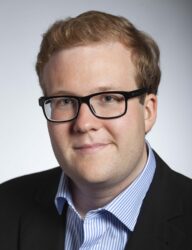
Julian W März
University of Zurich, Switzerland
Jun Kido
-
-
-
-
-
- 2006 Bachelor of Medicine, Kumamoto University School of Medicine (MD)
- 2013 Graduate School of Medical Sciences, Kumamoto University (Ph.D)
- Contract Assistant Professor belong to Department of Pediatrics, Faculty of Life Sciences, Kumamoto University (from 2015- to 2018).
- Assistant Professor of Department of Department of Pediatrics, Faculty of Life Sciences, Kumamoto University (from 2018- to 2021).
- Associate Professor of Department of Pediatrics, Kumamoto University Hospital (from 2021 to 2023 June).
- Guest Researcher in University Children’s Hospital Zurich and Children’s Research Centre (from 2023 May to 2023 Dec)
- Contract Associate Professor of Department of Pediatrics, Kumamoto University (from 2024 Jan- to 2024 Feb)
- Associate Professor of Department of Pediatrics, Kumamoto University Hospital (from 2024 Mar- to 2024 June).
- Associate Professor of Department of Pediatrics, Kumamoto University (from 2024 July- to present).
-
-
-
-
Award
- 2016 Young Investigator Award from Japanease Society of Inherited Metabolic Disease
- 2016 Best Presentation Award from Kyushu Society of Pediatrics
- 2023 The Archibald Garrod Award 2023 from SOCIETY FOR THE STUDY OF INBORN ERRORS OF METABOLISM)
- 2024 Investigator Award from Japanease Society of Pediatrics
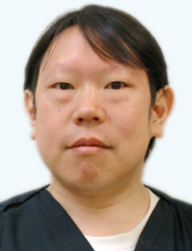
Jun Kido
Kumamoto University, Japan
Chong Kun Cheon
Education and Training
-
-
-
-
-
- Professor (2021-Present) Pusan National University Children’s Hospital, Yangsan, Korea
- Associate Professor (2016-2021) Pusan National University Children’s Hospital, Yangsan, Korea
- Research Fellow (2014-2016), Baylor College of Medicine, Houston, USA
- Assistant Professor (2009-2014), Pusan National University Children’s Hospital, Yangsan, Korea
- Resident & Clinical fellow (2004-2009): Asan Medical Center, Medical Genetics, Seoul, Korea
- Ph.D. (2011) University of Ulsan College of Medicine, Seoul, Korea
- M.S. (2008) Yonsei University College of Medicine, Seoul, Korea
-
-
-
-
Research Interest
Prof. Cheon is the Director of Pediatric Genetics, Department of Pediatrics, Pusan National University Children’s Hospital in Korea. Professor Cheon has a Broad Certification of Korean Society of Medical Genetics. From 2014 to 2016, he visited the department of Molecular and Human Genetics, Baylor College of Medicine in USA where he trained as a research fellow. He has over 15 years of clinical and research experience on the area of genetic disease and inborn errors of metabolic disease. He has been serving as the center director of the Gyeongnam Regional Rare Disease Center from 2019 to the present. He is currently a director of publication at the Korean Society of Medical Genetics and Genomics for three years. In addition, he is a general affairs director of the Korea Society of Inherited Metabolic Disease, and a President of the Interdisciplinary Society of Genetic & Genomic Medicine (ISGM) in Korea. Prof. Cheon’s experience is broad and encompasses teaching and clinical education, and extensive research in the topic of diagnosis and treatment of medical genetics which brought him Academic Awards
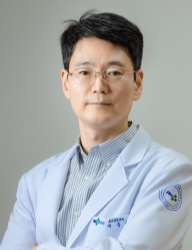
Chong Kun Cheon
Pusan National University School of Medicine, South Korea
Ljubica Caldovic
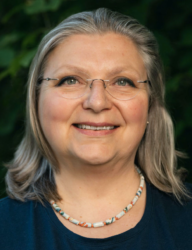
Ljubica Caldovic
Children's National Hospital, USA
Yoko Nakajima
Associate Professor, Department of Pediatrics, Fujita Health University
Education
- 2003 M.D., Shinshu University School of Medicine, Japan
- 2011 Ph.D., Graduate School of Medical Sciences, Nagoya City University, Japan
Professional Experience
- 2003–2005 Pediatric Residency, Seirei Hospital, Japan
- 2005–2006 Pediatrician, Seirei Hospital, Japan
- 2006–2011 Clinical Research Fellow, Department of Pediatrics, Nagoya City University, Japan
- 2011–2013 Research Fellow, Laboratory of Inherited Metabolic Disorders, AMC, University of Amsterdam, The Netherlands
- 2013–2014 Clinical Research Physician, Department of Pediatrics, Nagoya City University, Japan
- 2014–2016 Assistant Professor, Department of Pediatrics, Fujita Health University, Japan
- 2016–2023 Lecturer, Department of Pediatrics, Fujita Health University
- 2024–Present Associate Professor, Department of Pediatrics, Fujita Health University
Professional Societies
- The Japan Pediatric Society
- The Japanese Society for Inherited Metabolic Diseases (Board Member)
- The Japan Society of Human Genetics
- Japanese Society of Mass Screening
- SSIEM (Society for the Study of Inborn Errors of Metabolism)
- Japanese Society for Medical Mass Spectrometry (Councilor)
- The Japanese Society for Pediatric Endocrinology
- The Japanese Society of Child Neurology
Certification and Qualifications
- Board-Certified Pediatrician and Instructor, The Japan Pediatric Society
- Board-Certified Clinical Geneticist, Japan Society of Human Genetics
- Consultant for Neonatal Mass Screening, Aichi Prefecture
- Member, Quality Control Committee for Neonatal Metabolic Screening, Aichi Prefecture

Yoko Nakajima
Fujita Health University, Japan
Marinka Zitnik
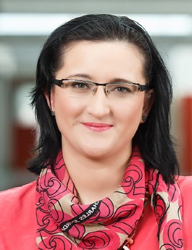
Associate Faculty, Kempner Institute for the Study of Natural and Artificial Intelligence, Harvard University
Marinka Zitnik is an Associate Professor at Harvard in the Department of Biomedical Informatics. Dr. Zitnik is Associate Faculty at the Kempner Institue for the Study of Natural and Artificial Intelligence, Broad Institute of MIT and Harvard, and Harvard Data Science. Dr. Zitnik investigates foundations of AI to enhance scientific discovery and facilitate individualized diagnosis and treatment in medicine.
Before joining Harvard, she was a postdoctoral scholar in Computer Science at Stanford University. She was also a member of the Chan Zuckerberg Biohub at Stanford. She received her bachelor’s degree, double majoring in computer science and mathematics, and then graduated with a Ph.D. in Computer Science from University of Ljubljana just three years later while also researching at Imperial College London, University of Toronto, Baylor College of Medicine, and Stanford University.
This research received best paper and research awards from International Society for Computational Biology, Bayer Early Excellence in Science Award, Amazon Faculty Research Award, Google Faculty Research Scholar Award, Roche Alliance with Distinguished Scientists Award, Sanofi iDEA-iTECH Award, Rising Star Award in Electrical Engineering and Computer Science (EECS), and Next Generation Recognition in Biomedicine. Dr. Zitnik received the Kavli Fellowship by the US National Academy of Sciences and the Kaneb Fellowship award at Harvard Medical School. She also received the NSF CAREER Award.
Dr. Zitnik is an ELLIS Scholar in the European Laboratory for Learning and Intelligent Systems (ELLIS) Society. She is a member of the Science Working Group at NASA Space Biology.. She is also the 2025 Member of the Senior Common Room at Leverett House at Harvard University.
Dr. Zitnik co-founded Therapeutics Data Commons and is the faculty lead of the AI4Science initiative.
Dr. Zitnik is the recipient of the 2022 Young Mentor Award at Harvard Medical School.

Marinka Zitnik
Harvard Medical School, Harvard University, USA

